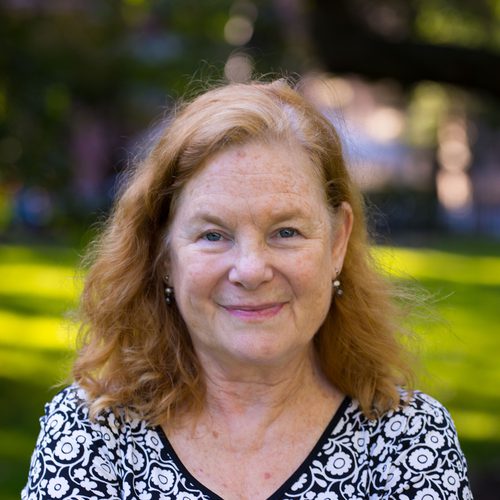
Claire Fontijn
Phyllis Henderson Carey Professor of Music
Links
Research and Teaching Interests: Early Music, Women Composers, Symphonic and Chamber Music Repertoire, J.S. Bach
Professor Fontijn teaches and researches the work of women composers across a wide music historical spectrum, ranging from the Middle Ages (Hildegard of Bingen) to the Baroque (Barbara Strozzi and Antonia Bembo), to the Romantic (Fanny Hensel). In 2007, she won the Nicolas Slonimsky Award for Classical Music Biography from ASCAP/Deems Taylor for her monograph Desperate Measures: The Life and Music of Antonia Padoani Bembo (Oxford, 2006; 2013). Together with Susan Parisi, she edited Fiori Musicali: Liber Amicorum Alexander Silbiger (Harmonie Park, 2010). Her second monograph is titled The Vision of Music in Saint Hildegard’s Scivias—Synthesizing Image, Text, Notation,and Theory (Custos, 2013). Her second edited volume is Uncovering Music of Early European Women (1250–1750) (Routledge, 2020).
Recent chapters from edited volumes range from the chorales of Fanny Hensel and Felix Mendelssohn Bartholdy (Anna Harwell Celenza and Katharina Uhde, eds., Unity in Variety--Essays in Musicology for R. Larry Todd, 2024) to an arietta that jests with solfege syllables (Sabine Meine and Daria Perocco, eds., Barbara Strozzi (1619–1677)--Music and Discourse in Seicento Venice, 2024). Fontijn's work has been supported by the American Musicological Society, the Andrew W. Mellon Foundation, the Gladys Krieble Delmas Foundation, the National Endowment for the Humanities, and the Institute for Citizens & Scholars.
Books:

Courses:
ITAS 223/MUS 223-Italian Popular Song (with Sergio Parussa)
MUS 200-Topics in Music History I: Global Music in an Age of Empire
MUS 301-Calderwood Seminar in Public Writing: The Power of Music
Education
- B.A., Oberlin College
- Certificate, Royal Conservatory of The Hague
- M.A., Duke University
- Ph.D., Duke University